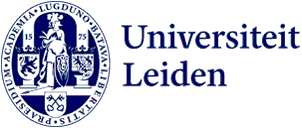University & Faculty Councils and Programme Committees
The university council and faculty councils are democratically elected co-participation bodies that represent both students and staff of the university and its faculties. Co-participation also takes place at departmental level through programme committees.
The University Council
The role of the university council is to critically observe and advise the Executive Board and, when applicable, to assist the board with important decisions. The powers of the University Council are laid down in the Higher Education and Research Act (WHW) and the University Council Regulations (both only available in Dutch).
Faculty Councils
Every faculty has a faculty council. After the university council, the faculty council is the second highest co-participation body within the university. Faculty councils consist of both staff and student members. Find out more under your faculty tab or in the organisational structure.
Programme Committees
Every programme has a programme committee. Within programme committees, lecturers and students come together to discuss the education provided by the programme. Programme committees provide both solicited and unsolicited advice to programme boards, faculty boards and faculty councils, concerning the quality of education, the course and examination regulations (OER) and educational facilities. If further information is available about your programme committee, this can be found under your programme tab.
Faculty of Archaeology student participation
The Faculty of Archaeology has various councils and committees that advise and decide on all the issues involving the Faculty.
The education programme and its content is one of these matters. Consultations are held at various levels about how the programme can be evaluated and subsequently improved. The Faculty feels that it is important that issues affecting students are also clarified at management level.
Many students are not currently aware that any ‘complaints’ they have about the education programme can actually be turned into improvements. For this purpose, the faculty has so-called participation bodies. These bodies have student representatives who contribute to education-related issues.
In order to know what is going on, students must provide these student representatives with information. Below, we will briefly explain how students can make their comments and any complaints about the education programme known to these representatives
Education Committee (opleidingscommissie)
The Faculty of Archaeology has one Education Committee.
The education committee represents the interests of the students regarding their education programme. It advises the Faculty Board about all aspects of the studies, e.g. programmes, timetables, study load, etc. The committee works on the quality assurance system of the faculty's programmes. Half of the members of the committee are students, of which two Bachelor and two (Research) master students that are elected by the faculty study population.
See for more information the Education Committee's website.
Faculty council
The Faculty Council is the main consultation and advisory body within the Faculty of Archaeology and plays an intermediary role between different segments of the organization of the Faculty. The Council has rights of approval and advice on a variety of issues concerning the Faculty. Its members also act as representatives for students and staff as well as providing critical feedback on policies and decisions from the Faculty and University Board. Do you have an idea or suggestion to improve our faculty? Or do you have a complaint and are you unsure who to approach? Please do not hesitate to contact one of the members of the Faculty Council!
See for more information the website of the Faculty Council.
Assessor
There is also a student member in the faculty board who is tasked with the portfolio of student affairs: the assessor. The assessor is responsible for ensuring that the voice of the students is heard in the board meetings on all faculty-related matters. The assessor does this in consultation with various bodies, including the OLC and FR, as well as with assessors from the other faculties (LAssO), study association L.A.S. Terra, the faculty’s LUS member, and of course the students themselves.
If a student has any questions/complaints/comments about the programme or the faculty in general and does not receive a response from the OLC or the FR, the student can contact the assessor.
The assessor is also available for urgent issues: in contrast to the OLC and FR, which may only meet once a month, the assessor works every day of the week and can therefore often take action faster.
Zoë van Litsenburg
assessor@arch.leidenuniv.nl
Van Steenis building
Room A2.18
Board of Examiners
The Board of Examiners is no co-participatory body. The board is responsible for guaranteeing the quality of the bachelor's and master's programmes of the Faculty of Archaeology.
See for more information the website of the Board of Examiners.
Surveys and Cohort evaluations
Besides students approaching the above people directly, the OLC and the assessor also seek information from students relating to the education programme. The surveys which most students will be aware of are an important tool in this respect. The OLC receives these surveys and evaluates them, after which it advises the lecturer concerned.
Furthermore, at the end of each term, cohort evaluations are organised during which student representatives consult all the students from a particular study year to evaluate the education from the last 2 blocks.
The results are used to plan the next academic year. The results from the surveys and consequent action points are also discussed during the cohort evaluations.
In order to get a good impression of the students’ opinion, it is important that the surveys are completed seriously and by all students. If this does not happen, a distorted picture of the general opinion is created and the results cannot be used. The same applies to attendance at the cohort evaluations.
